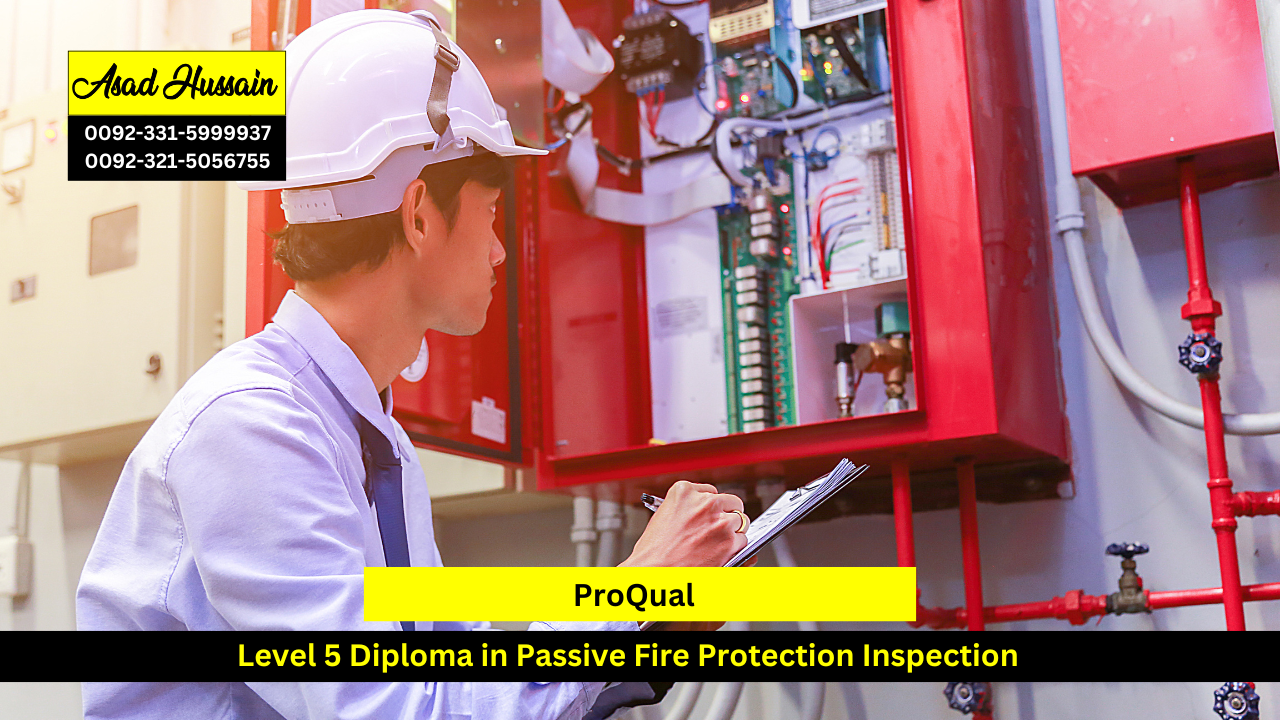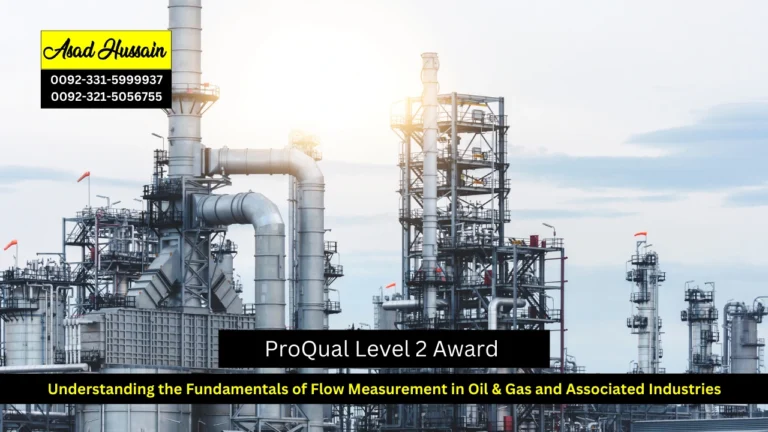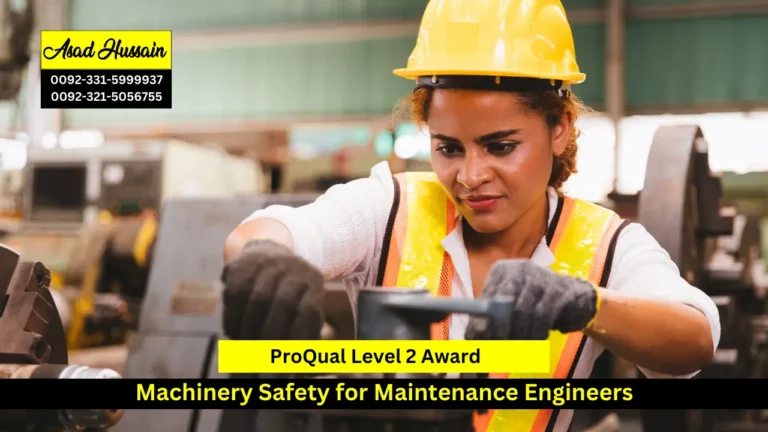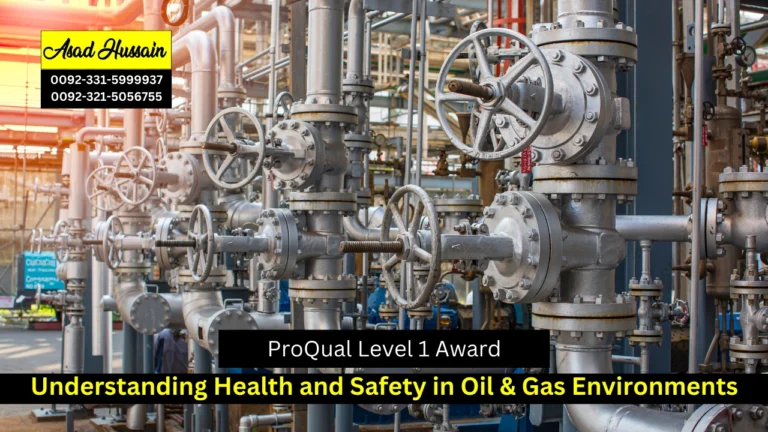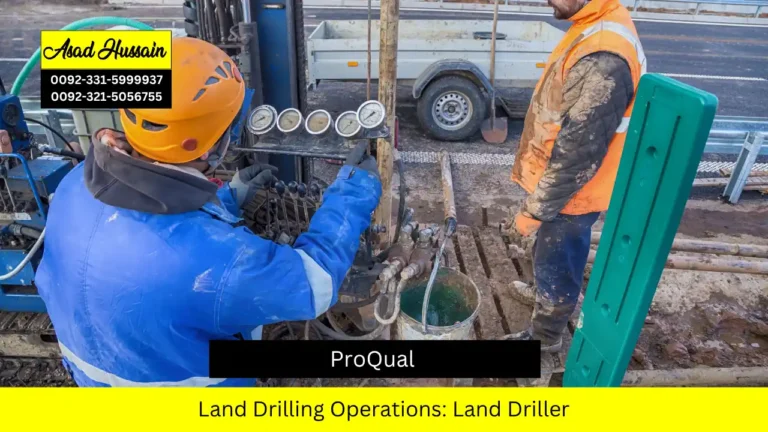In today’s safety-conscious world, effective fire protection is essential for safeguarding lives and properties. The ProQual Level 5 Diploma in Passive Fire Protection Inspection provides the specialized knowledge and skills necessary to ensure compliance with fire safety regulations and standards. Whether you’re a seasoned professional or looking to elevate your career in fire safety, this diploma offers a significant advantage.
The ProQual Level 5 Diploma in Passive Fire Protection Inspection is a vital qualification for anyone looking to excel in the field of fire safety. With a focus on practical skills, expert instruction, and comprehensive coverage of essential topics, this diploma prepares you to tackle the challenges of fire protection inspection effectively. Don’t miss this opportunity to enhance your career—enroll today and take the first step toward becoming a leader in passive fire protection!
The ProQual Level 5 Diploma in Passive Fire Protection Inspection is designed for professionals responsible for assessing and ensuring the integrity of passive fire protection systems. This qualification covers vital topics such as fire safety legislation, inspection methodologies, risk assessment, and reporting procedures. Participants will learn how to effectively evaluate passive fire protection measures and recommend improvements to enhance safety.
Program Highlights
The ProQual Level 5 Diploma in Passive Fire Protection Inspection, achieve the qualification candidates must achieve each of the mandatory units, plus a minimum of two of the optional units:
Mandatory Units
Mandatory Units – complete all units
| Unit Title | Level | GLH |
| Building Control Site Inspection and Plan Assessment | 5 | 150 |
| Monitor Project Quality in Construction – Passive Fire Protection | 5 | 145 |
Optional Units – complete a minimum of two units
| Unit Title | Level | GLH |
| Inspecting and Testing of Fire Resisting Door Installations | 3 | 30 |
| Inspecting and Testing of Fire Stopping Installations | 3 | 30 |
| Inspecting and Testing of Fire-Rated Ductwork and Damper Installations | 3 | 30 |
| Inspecting and Testing of Fire-Rated Steel Intumescent Coating Installations |
Entry Requirements
This is an advanced, specialist qualification for professionals seeking formal competency in the critical inspection and certification of passive fire protection (PFP) systems. To ensure candidates have the necessary foundational knowledge and professional standing, the following requirements are in place:
- Age and Occupational Role: Applicants must be at least 19 years of age and must be employed in a professional role directly related to construction, fire safety, or building control where inspecting PFP installations is a key responsibility.
- Industry Experience and Background: Significant prior experience in fire safety, construction, or building services is essential. A background evidenced by related certifications, such as a Level 3 NVQ in a relevant construction trade, qualifications from the Institute of Fire Prevention Officers (IFPO), or manufacturer-specific PFP installation training, is highly beneficial.
- Language Proficiency and Technical Ability: Candidates must have proficient English language skills to accurately interpret complex building regulations, British Standards (e.g., BS 9999, Approved Document B), and produce detailed, legally compliant inspection reports.
- Supporting Your Application: A background demonstrated by prior qualifications in construction supervision, building control, fire risk assessment, or site management is advantageous.
Each application is reviewed on its individual merits, with a primary focus on the candidate’s current professional role and their practical ability to gather the required on-site evidence of inspecting passive fire protection systems to the required competency standards.
Learning Outcomes
Upon successful completion of the ProQual Level 5 Diploma in Passive Fire Protection Inspection, participants will achieve the following learning outcomes:
- Comprehensive Understanding of Passive Fire Protection: Demonstrate a thorough understanding of passive fire protection principles, including the various types of systems and materials used in construction to contain and control fire spread.
- Knowledge of Regulatory Requirements: Identify and interpret relevant legislation, codes, and standards pertaining to fire safety and passive fire protection, ensuring compliance in inspections and assessments.
- Risk Assessment Proficiency: Conduct detailed fire risk assessments, identifying potential hazards and evaluating the effectiveness of existing passive fire protection measures in diverse building environments.
- Inspection Techniques: Apply effective inspection methodologies to assess the integrity and performance of passive fire protection systems, including fire-rated walls, doors, and other barriers.
- Practical Application of Skills: Utilize case studies and real-world scenarios to apply theoretical knowledge, demonstrating the ability to implement best practices in passive fire protection inspections.
- Reporting and Documentation Skills: Prepare clear and comprehensive reports on inspection findings, including recommendations for improvements and compliance measures, to communicate effectively with stakeholders.
- Critical Thinking and Problem-Solving: Develop critical thinking skills to analyze complex fire safety issues, enabling effective decision-making and problem-solving in various situations related to passive fire protection.
- Commitment to Continuous Improvement: Foster a mindset of continuous professional development, recognizing the importance of staying updated with advancements in fire safety practices and technologies.
By achieving these learning outcomes, participants will be well-equipped to enhance their careers in fire safety and contribute meaningfully to the protection of lives and properties through effective passive fire protection measures.
Target Audiences
This advanced diploma is designed for experienced construction and fire safety professionals who hold, or are advancing towards, a formal role of ensuring life safety through the correct installation and compliance of passive fire protection (PFP) systems. It is a critical qualification for:
- Fire Safety Consultants & Advisors: Professionals who specify PFP measures, conduct fire strategy reviews, and need certified expertise to inspect and verify on-site installations against design and regulations.
- Construction Managers & Site Supervisors: Senior site-based personnel, including clerks of works and package managers, responsible for supervising and signing off critical fire stopping, compartmentation, and structural fire protection work.
- Building Control Officers & Approved Inspectors: Individuals in regulatory or warranty roles who require a deep, certified understanding of PFP to assess compliance, inspect works, and enforce building safety standards.
Ultimately, this diploma is for the pivotal specialists who act as the technical authority on-site, providing the certified competency to inspect, report on, and safeguard the integrity of a building’s fundamental fire protection systems.

